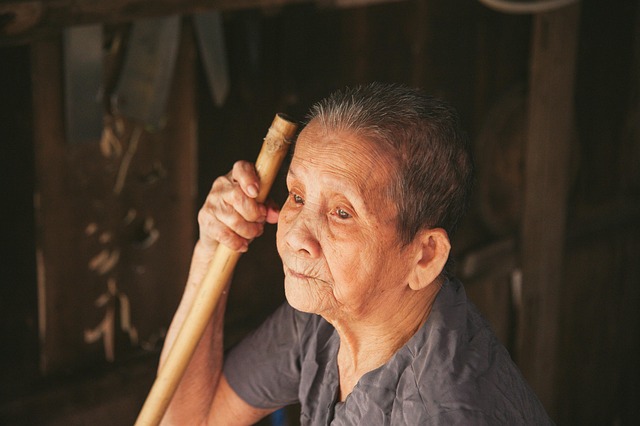In Oregon, grandparent rights are crucial for maintaining family connections. Navigating the complex legal system requires professional legal help to protect these rights, especially when dealing with parental decisions. Grandparents should consult experienced family law attorneys, gather essential documents, and file petitions within time frames to ensure their voices are heard in court. Overcoming obstacles like lack of awareness, resistance from parents, and a complex legal landscape is essential for effective advocacy. Oregon grandparent rights groups play a vital role by educating the public, engaging with lawmakers, and providing support through alliances with community organizations. Legal aid and local support groups further empower grandparents to navigate legal advocacy successfully in Oregon.
In Oregon, recognizing and protecting grandparent rights is a growing area of focus. This article delves into the intricate legal landscape surrounding these rights, offering a comprehensive guide for navigators of all types—from legal professionals to concerned grandparents. We explore why advocacy is vital, providing a step-by-step journey through Oregon’s court system. Furthermore, we highlight common hurdles and equip readers with effective strategies for grandparent advocacy groups. Understanding these aspects is key to ensuring that families in Oregon can navigate legal advocacy successfully.
- Understanding Grandparent Rights in Oregon: A Legal Perspective
- The Importance of Advocacy for Grandparents
- Navigating the Oregon Court System: Step-by-Step Guide
- Common Challenges Faced by Grandparents Seeking Rights
- Effective Strategies for Grandparent Advocacy Groups
- Resources and Support for Grandparents in Oregon
Understanding Grandparent Rights in Oregon: A Legal Perspective

In Oregon, grandparent rights are an important aspect of family law that often requires navigating complex legal procedures. Grandparents seeking access to their grandchildren may face challenges in asserting their rights, especially if there are existing custody arrangements or circumstances involving parental decision-making. Understanding these rights involves familiarizing oneself with state laws and regulations that govern such matters.
Legal advocacy plays a crucial role in ensuring grandparent rights are protected and upheld. Oregon’s legal system provides mechanisms for grandparents to seek visitation, custody, or even joint guardianship if the well-being of the grandchild is at stake. Navigating this process may require the expertise of experienced family law attorneys who can guide grandparents through court proceedings, help them understand their legal options, and represent their interests effectively.
The Importance of Advocacy for Grandparents

Grandparent rights are a vital aspect of family dynamics, and in Oregon, advocating for these rights is essential to ensure that grandparents maintain significant relationships with their grandchildren. As the legal landscape can be complex, navigating legal advocacy in Oregon is crucial for protecting these familial connections. Many grandparents face challenges when it comes to visitation, custody, and even access to medical information about their grandchildren.
Effective advocacy ensures that the unique needs of grandfamilies are recognized and addressed, fostering a healthier and more stable environment for all involved. By understanding their legal rights and options, grandparents can actively participate in decisions affecting their loved ones, ensuring their voices are heard within the Oregon justice system.
Navigating the Oregon Court System: Step-by-Step Guide

Navigating the Oregon Court System for grandparent rights can seem daunting, but with a structured approach, families can ensure their voices are heard. Here’s a step-by-step guide to legal advocacy in Oregon:
1. Consultation: Begin by meeting with an experienced family law attorney who specializes in grandparent rights cases. They will assess your specific situation and provide guidance tailored to your needs. This consultation is crucial for understanding the legal landscape and available options.
2. Gather Documentation: Collect essential documents, including birth certificates, marriage licenses, court orders related to custody or visitation, and any evidence demonstrating a significant relationship between grandparents and grandchildren. Well-organized documentation strengthens your case.
3. File Petition: Depending on the circumstances, file a petition for grandparent rights through the appropriate Oregon state court. This may involve requesting joint legal or physical custody or specific visitation rights. Ensure all forms are accurately completed and filed within the prescribed time frame.
4. Service of Process: After filing, the court will issue a summons, which must be served on the child’s parents. This process ensures they are officially notified of the petition. A professional process server can handle this step to ensure compliance with legal requirements.
5. Court Hearings: Attend all scheduled hearings and be prepared to present your case. Present evidence, testify if necessary, and address any questions from the judge. Legal advocacy in Oregon requires clear communication and a strong understanding of the court’s expectations.
Common Challenges Faced by Grandparents Seeking Rights

Grandparents in Oregon often find themselves facing significant challenges when advocating for their rights, especially when it comes to gaining access and involvement in their grandchildren’s lives. One of the primary hurdles is navigating the complex legal system, which can be intimidating and confusing, particularly for those without legal expertise. Many grandparents may not be aware of their specific rights or the processes required to enforce them. This often leads to delays in seeking legal advocacy, allowing other family members to establish precedent and potentially limit grandparent involvement.
Additionally, establishing a strong relationship with the child’s parents or legal guardians can be difficult for grandparents. They might face resistance from these primary caregivers, who may prioritize their own schedules and decisions over grandparent access. This dynamic is further complicated by potential conflicts within the family, making it crucial for grandparents to approach these situations with sensitivity and a solid understanding of their legal standing in Oregon.
Effective Strategies for Grandparent Advocacy Groups

Grandparent rights groups in Oregon can make a significant impact through strategic planning and effective navigation of the state’s legal landscape. One key strategy is to build strong alliances with local community organizations, schools, and healthcare facilities. By partnering with these entities, advocacy groups can raise awareness about grandparent-related issues and gain support for their causes. Educational campaigns targeting both the general public and legal professionals are another powerful tool; providing resources and information on grandparent rights laws in Oregon ensures that everyone is on the same page.
Additionally, these groups should focus on staying updated with the latest legal developments, as well as engaging directly with lawmakers and judicial officials. Navigating legal advocacy in Oregon involves participating in public hearings, submitting legal briefs, and even lobbying for changes to existing policies. By employing these strategies, grandparent rights organizations can effectively advocate for their members, ensuring that their voices are heard and their needs are addressed within the legal framework of the state.
Resources and Support for Grandparents in Oregon

In Oregon, grandparents seeking to advocate for their rights can find a range of resources and support systems tailored to their unique situation. Legal aid organizations dedicated to family law offer pro bono services or low-cost consultations, making legal advocacy more accessible. These groups provide guidance on visitation rights, custody arrangements, and the establishment of grandparent-child relationships. Supportive networks, including local grandparent support groups and community centers, serve as valuable resources for sharing experiences, gaining insights, and connecting with like-minded individuals navigating similar challenges in the legal system.
Additionally, Oregon’s Department of Human Services offers programs designed to strengthen family ties, often providing a pathway for grandparents to actively participate in their grandchildren’s lives. These services can facilitate the process of establishing legal rights and responsibilities, empowering grandparents to effectively navigate the complexities of legal advocacy in Oregon.













